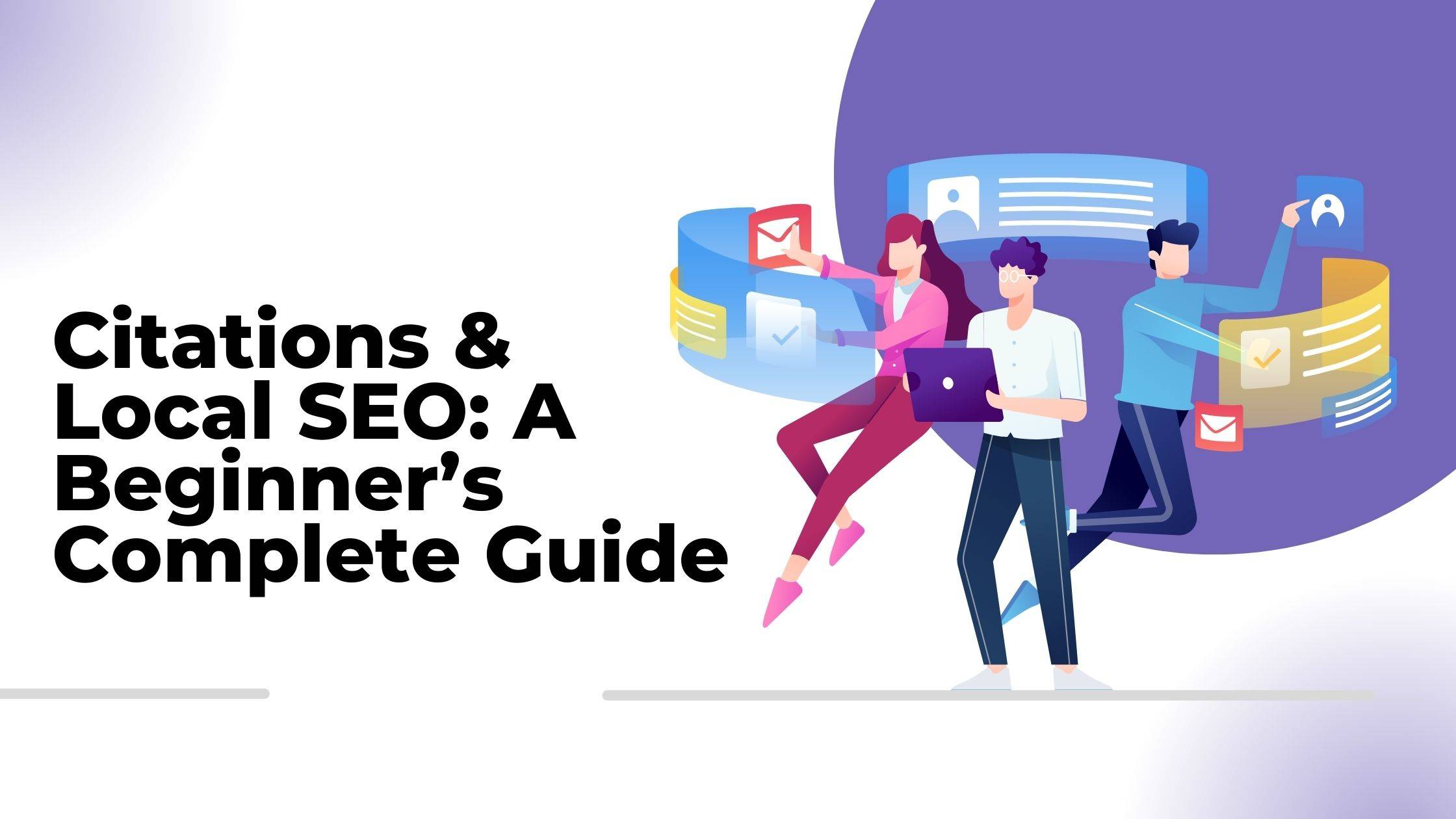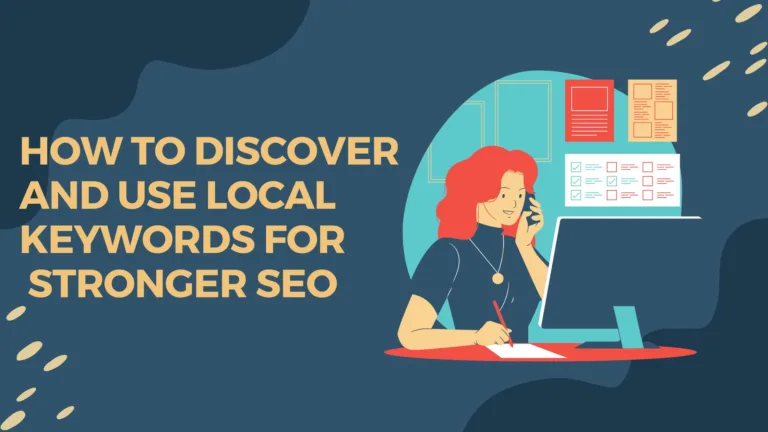New to managing citations? Citations play a crucial role in local search rankings. This guide will help you understand how to effectively manage and optimize them.
Citations are a fundamental element of local SEO, and many new SEOs start their careers by handling citations for clients.
When implemented correctly, citations are easy to maintain and can significantly boost local search visibility.
On the other hand, incorrect citation management can become a major headache to fix.
This guide covers everything you need to know about citations to strengthen your local SEO strategy.
What Are Citations?
Citations are online mentions of a business that include its name, address, and phone number (NAP).
In SEO terms, citations usually refer to multiple individual business listings across different websites.
Most citations appear in online business directories, though there are other formats as well.
While the basic requirement for a citation is typically just the NAP, many platforms allow you to add additional details to enhance your listing.
Types of Citations
There are many types of citation websites, and SEOs often debate which ones carry the most value.
For local SEO, however, the community generally agrees on a few “must-have” citations:
- Google My Business
- Bing Maps
- Yelp
While hundreds of websites exist for listing a business online, not all will be relevant. That’s where citation categories come into play.
Different industries—attorneys, healthcare providers, real estate agents, and more—have specific citation categories.
Although some directories have higher domain authority than others, relevance to your industry is more important. Being listed in the correct category is crucial for local SEO success.
Link Building vs. Citations
Some SEOs confuse citation management with link building. While citations do create links, their purpose is different. Search engines like Google can distinguish between the two.
Why Citations Matter
Boost Local Rankings
Citations are a recognized ranking factor in local SEO. Listings in reputable directories signal to Google that your business exists and is trustworthy.
The number, accuracy, and quality of your listings all influence how search engines view your online presence, making it essential to choose your citation sources carefully.
Gain Page One Exposure
Another advantage of citations is that some directories consistently appear on page one of local search results. Platforms like Yelp and YellowPages often dominate local search results.
If you can’t outrank them, consider joining them. Being listed on these sites can help you secure additional visibility on page one of search results.
Earn Referral Traffic
Many users rely on specific citation sites—Yelp, for example, is a go-to platform for restaurant seekers. Food enthusiasts often check Yelp before searching on Google.
Being listed on multiple relevant directories can drive valuable referral traffic to your business.
How to Choose the Right Citations
With so many citation options available, it’s often impossible to get listed on every single one due to time or budget constraints.
While having numerous citations is beneficial, don’t stress if you can’t be on every platform. Focusing on quality and relevance is more important than sheer quantity—and not being everywhere can actually work in your favor.
If you’re using a citation management tool, keep in mind that it may only sync with a limited number of directories.
When choosing which citations to list your business on, a good approach is to start with online directories most relevant to your industry.
There are several resources with top industry-specific citation lists:
- Moz – Citations by Category
- WhiteSpark – Best Citations by Category
After identifying industry-focused directories, you should compile a list of general citations. BrightLocal provides a helpful list of some of the most widely used directories.
The best directories are those that your potential customers actually use. For example, HealthGrades is popular for people searching for doctors. Being listed here not only increases relevance for healthcare businesses but can also drive valuable referral traffic.
Tools to Help Manage Citations
Various tools exist to help manage online business listings. They differ in cost, features, and functionality, but most cover the same core citations. This can make selecting the right tool challenging.
What to Look for in Citation Management Tools
When evaluating a tool, consider the following:
Citation Variety
- Does it offer industry-specific directories?
- Can you select specific directories, or does the tool choose automatically?
- How does it create citations—via direct API, aggregators, or other methods?
- Does it handle duplicate suppression effectively?
- How accurate is duplicate detection, and how easy is it to manage?
Tracking
- What tracking features are included?
- How accurate is the tracking?
- Can it sync with other tracking tools?
Price
- Does the cost per location fit your budget?
- How does it compare to other tools with similar features?
How to Optimize Citations
Managing citations goes beyond simply listing your business online. To maximize your local SEO impact, consider these key factors:
NAP Consistency
Ensure your business name, address, and phone number (NAP) are consistent across all listings. Studies indicate that consistent NAP information can positively influence local SEO.
Business Descriptions
Including well-crafted business descriptions with your top keywords can help improve local rankings and allow search engines to better understand your business.
Website Link
Instead of linking only to your homepage, link directly to the relevant location page. This provides users quicker access to information and helps search engines understand your site structure.
Business Category
Some platforms, like Google My Business, allow secondary categories. Selecting relevant secondary categories can help you rank for additional targeted keywords.
Photos
Adding photos can increase customer engagement and improve rankings in image search if optimized correctly. Be sure to optimize file names and alt text when the directory allows it.
Reviews
Positive reviews not only attract new customers but can also boost your rankings. Search engines, including Google, consider review sentiment from third-party sites when evaluating business quality.
How to Track and Measure Citation Value
Citation management is an investment, and stakeholders will want to see its impact. Many tools offer tracking features, but there are additional steps to ensure you can measure performance accurately.
Tracking Citation Status
Some tools maintain live citations via APIs, while others simply create listings and leave them unmonitored. Since citations can be lost for various reasons, it’s important to track their status regularly.
If your chosen tool doesn’t offer tracking, third-party solutions can help.
Recommended Tools (Author’s Note: Not Sponsored)
- Little Warden – A paid yet affordable tool to monitor URL response codes and other metrics. It can notify you via email if any citations go offline.
- Screaming Frog – Offers a free version, but the paid version allows scheduled crawls to check URL response codes and ensure your listings remain active.
How to Track Citation Performance
Many tools offer some level of performance tracking, but none can directly measure how citations impact your website as a whole.
While you can monitor individual sites through the acquisition report, tracking overall citation performance across all listings usually requires creating a custom report.
A simpler approach is to use UTM tracking in your URLs, applying the same campaign or source name to each link.
Example:
https://www.mywebsite.com/location/cityname?utm_source=citation&utm_medium=referral
With this setup, you can easily filter for “citation” in Google Analytics under the Source/Medium report to see how your listings are driving traffic.




